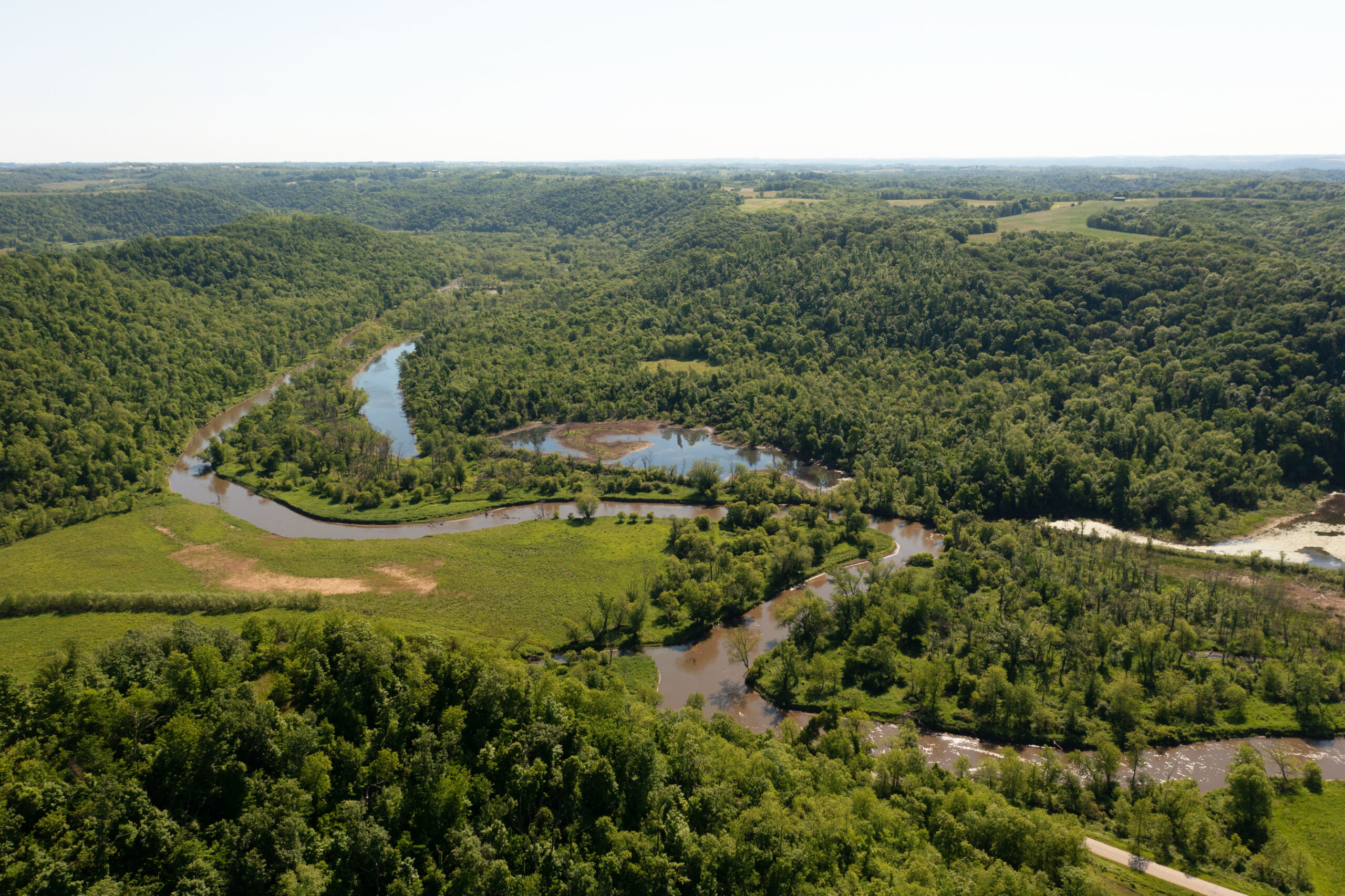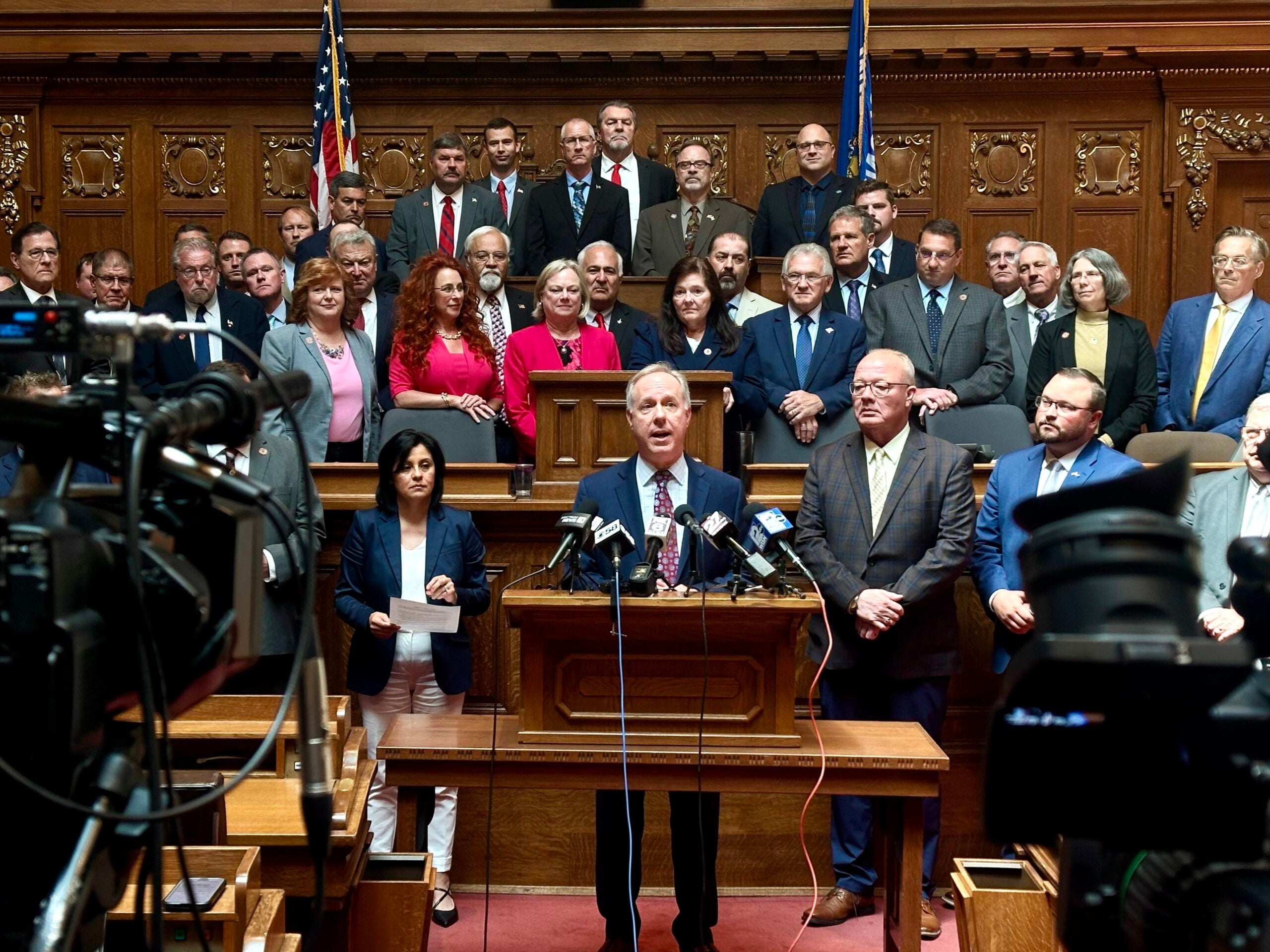Environmental groups are accusing Republican lawmakers of politicizing the policy-setting board for the Wisconsin Department of Natural Resources after a State Senate committee rejected four appointees by Democratic Gov. Tony Evers.
At the same time, some hunting groups say Evers should work with the outdoors community to appoint new nominees to the Natural Resources Board.
The GOP-controlled Senate sporting heritage committee voted 3-2 on Thursday to reject confirmation of Sharon Adams, Dylan Jennings, Sandra Dee Naas and Jim VandenBrook. The committee unanimously supported confirmation of Evers’ appointee Paul Buhr. The seven-member board is currently made up of Evers’ nominees, but the Republican-controlled Senate has only confirmed two of them — board chair Bill Smith and Marcy West.
News with a little more humanity
WPR’s “Wisconsin Today” newsletter keeps you connected to the state you love without feeling overwhelmed. No paywall. No agenda. No corporate filter.
“It’s outrageous that four dedicated and qualified public citizens who are volunteering their time, energy, and expertise to serve our state continue to be subjected to the political ire of Wisconsin Republicans whose own resumes wouldn’t pass muster for filling these very roles,” Evers’ spokesperson Britt Cudaback said in a statement.
The vote may be the first time in nearly two decades that a committee has rejected approval of a nominee to the board. In 2004, the Senate Environment and Natural Resources Committee voted 3-2 against confirming Jonathan Ela. According to the Legislative Reference Bureau, former Democratic Gov. Jim Doyle later recommended Ela to the board in 2007, and he was confirmed. In 1999, the full Senate voted 17-16 to reject confirmation of Francis “Bill” Murphy’s nomination to the board amid scrutiny over allegations of sexist and racist remarks.
The committee had recently pressed Evers’ appointees regarding their stance on a variety of issues, including PFAS and the state’s wolf management plan. Environmental groups like Clean Wisconsin and Midwest Environmental Advocates, or MEA, argue the committee’s vote is part of a pattern that goes beyond any one issue.
“It’s about politicizing the Natural Resources Board and trying to sway decisions, not in the interest of the people, but in the interest of a narrow group of industries and special interests,” MEA Executive Director Tony Wilkin Gibart said.
Committee pressed appointees for stance on wolf management
Committee Chair Sen. Rob Stafsholt, R-New Richmond, had asked board members in hearings whether the wolf plan should include a statewide population goal. Stafsholt has co-authored a bill that would force the DNR to set a statewide goal for wolves, which hunting and farm groups support.
Hunting groups like the International Order of Teddy Roosevelt, or IOTR, applauded the committee’s vote to reject the four appointees. Luke Hilgemann, the group’s executive director, said the committee has a duty to ensure members of the board will promote hunting, trapping and fishing in Wisconsin.
“I don’t think that they saw the type of answers they needed or type of commitment they needed from these nominees to keep these traditions moving forward in Wisconsin,” Hilgemann said. “We at IOTR applaud the committee’s action and encourage Governor Evers to go back to the drawing board, work with the outdoor community to find nominees who can fill the seats on the Natural Resources Board.”
Hilgemann said the group had concerns about the four appointees, pointing to their comments on the wolf management plan. He said the majority of hunters and anglers want to see a statewide population goal under that plan, calling the lack of one a grave mistake.
Some hunters and farmers have advocated for a statewide population goal under the DNR’s wolf management plan that is in line with a 1999 plan that set a goal of 350 wolves. Setting that number as a population goal would require effectively eliminating around two-thirds of the state’s current wolf population. The plan is up for a vote by the Natural Resources Board at its Oct. 25 meeting.
Erik Kanter, government relations director for Clean Wisconsin, noted any regulations approved by the board are still subject to legislative oversight. He highlighted that the Legislature’s Joint Committee for Review of Administrative Rules can shoot down any rules approved by the board.
“This is indicative of a larger pattern that we’ve seen since Gov. Evers took office of the Legislature either holding up confirmations sort of indefinitely, voting down confirmations as we’ve seen previously, and certainly as we saw yesterday,” Kanter said. “It’s frustrating.”
WPR reached out to the committee’s GOP lawmakers and Republican Senate Majority Leader Devin LeMahieu, but they either declined or did not immediately return requests for comment. As of earlier this year, the Republican-controlled Senate had delayed or failed to confirm nearly 180 people appointed by Evers to lead state agencies, boards, and commissions.
The state’s largest business lobby, Wisconsin Manufacturers and Commerce, or WMC, didn’t take a position on Evers’ appointees. Even so, Scott Manley, executive vice president of government relations for WMC, said some appointees indicated during the committee’s hearings that they wouldn’t follow the law.
Manley cited comments among some board members who said they’d be willing to approve regulations that go beyond federal standards for water quality. He argued that state law requires standards to be consistent with and not exceed requirements under the federal Clean Water Act. Environmental groups have argued the state’s groundwater law allows more protection than federal standards.
“We have made our position clear that we think that any nominees to a cabinet secretary position or to a board, like the Natural Resources Board, that has lawmaking authority should be held to, I think, a very reasonable standard,” Manley said. “They should be willing to make a commitment to follow the law. If they’re not willing to make that commitment, we don’t think they should be serving the people of Wisconsin.”
Board’s former chair sought to retain conservative majority
The debate over water quality and wolf management are among reasons that the board’s former embattled chair, Fred Prehn, refused to step down at the end of his term in 2021. His decision to remain on the board blocked Naas from taking a seat. As first reported by the Milwaukee Journal Sentinel, Prehn sought advice from conservative lobbyists, state senators, former Republican Gov. Scott Walker and former Republican candidate for governor Rebecca Kleefisch about his choice to stay on the board.
Prehn’s decision to stay had ensured conservatives would continue to hold a 4-3 majority on the board that decides environmental policies, including standards enacted last year for PFAS in drinking and surface waters.
“The very reason we don’t have PFAS water quality standards to protect families who use private drinking water wells is because Senate Republicans played political games to keep one of their campaign donors on the board to kill those water quality standards,” Wilkin Gibart of MEA said. “And then they turn around and argue that these appointees are too political.”
LeMahieu told the Milwaukee Journal Sentinel earlier this year that some appointees were “more political” or didn’t have the background to serve on the board.
Fred Clark, executive director for conservation group Wisconsin’s Green Fire, said more discussion is needed on what skill sets or backgrounds are necessary for board members guiding policy for the DNR.
“If they don’t make the cut, who does?” Clark said. “I think that’s the question that a lot of people in Wisconsin are going to have right now.”
Evers’ appointees to the board can serve until the entire Senate votes on whether they should be confirmed. Senate leaders have yet to schedule a vote. If the Senate votes to remove them, the board can continue to operate as long as a majority of the board’s members constitutes a quorum to conduct business. Evers would also be able to appoint new members.
Wisconsin Public Radio, © Copyright 2026, Board of Regents of the University of Wisconsin System and Wisconsin Educational Communications Board.







